#CapMinds
Explore tagged Tumblr posts
Text
1 note
·
View note
Text
Behavioral Health
Discover how OpenEMR can transform your Behavioral Health practice with our ultimate Q&A guide!
From creating patient profiles to managing appointments and ensuring data security, we've got the top 15 questions covered.
Get the insights you need to run your behavioral health practice smoothly and efficiently with the help of OpenEMR. Learn more in-depth in our blog post -
1 note
·
View note
Photo
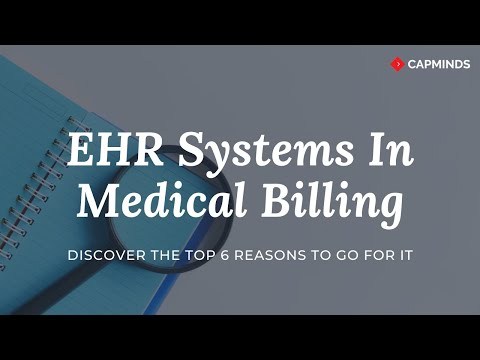
CapMinds offer EHR systems in in-depth and professional educated reports. It assists the health company to customize the internal procedures for much better care and income success. We pride to state that we provide EHR to be a multi-purpose tool that can do more than simply the essentials and satisfy our customer requires. Learn more:…
0 notes
Photo

CapMinds offer EHR systems in comprehensive and skilled educated reports. It assists the health company to customize the internal procedures for much better care and profits success. We pride to state that we provide EHR to be a multi-purpose tool that can do more than simply the fundamentals and meet our customer requires. Find out…
0 notes
Text
#patient portal software#patient portal vendors#patient portal solutions#patient portal solution#free patient portal software#comprehensive minds#online patient portal software#patient engagement portal solution#solutions reach patient portal
0 notes
Text
2 notes
·
View notes
Link
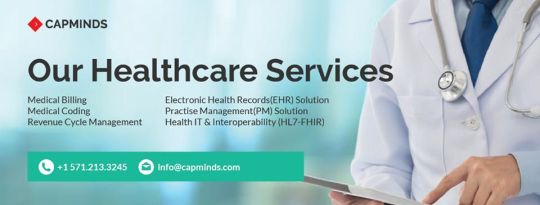
CapMinds Medical billing services enable medical practices to outsource long and difficult claims management and insurance payment processes. Discover the best providers of medical billing.
#medical billing#medical billing services#capminds#medical billing usa#healthcare services usa#medical coding#ehr solution
1 note
·
View note
Text
Over the last ten years, the healthcare industry and consumers have considered technology a crucial tool for optimizing patient care and pharmaceutical development.
The digital health industry is constantly evolving and investment in digital health has soared.
Despite the economic challenges and market downturn, most investors anticipate that digital health funding in 2023 will remain consistent with 2020, generating an estimated $15 billion to $25 billion.
The venture funding for digital health reached an all-time high last year, surging from $8.1 billion in 2019 to $29.2 billion in 2021. However, 2022 has been disappointing, with funding dropping to $12.6 billion for the first three quarters.
1 note
·
View note
Text

Starting a healthcare company requires a balance of vast industry insight, austere regulatory compliance, technical flexibility, and strategic assistance.
6 Steps for Launching a Healthcare Startup
1. Develop an Idea
Clearly define your goals and ideas that address the specific need in the healthcare sector. It might involve a new technology, services, or approaches to patient care.
2. Conduct Market Research
Thoroughly research to identify your target audience and find their needs and pain points in healthcare. Evaluate the provided advantages and drawbacks of your chosen field. It allows you to frame your idea and ensure that it aligns with demand in the market.
3. Business Plan
A well-defined business plan serves as your guide to launching a healthcare venture. It must include an overview of your vision, intended audience, revenue process, and immediate and future objectives. Healthcare start-ups need a detailed plan to find investors and loans.
4. Build a Strong Team
A successful health startup needs experts on the team. It is professionals such as marketing, sales, design, and medical experts for develop a product or service. Building a good team may also involve hiring crucial people who can act as mentors or advisors.
5. Manage Regulatory Compliance
The healthcare industry is heavily governed by laws and regulations, posing challenges for startups. It encompasses HIPAA, FDA, state, and federal regulations. When they fail to comply with regulations can lead to costly fines.
6. Secure Funding
Financing is important in medicine. The business plan should have objectives, targets, services, and financial projections. It involves seeking funding from venture capitalists, investors, or grants.
0 notes
Text

Pharmacy refers to the practice of dispensing and providing information about medications. Pharmacists work to help patients receive safe and effective medications, offering medical services like health counselling, vaccinations, and health screenings.
Uses of AI in Pharmacy
AI sends automated medication reminders to patients, including dosage, time of administration.
Artificial Intelligence screens potential drug interactions and alerts providers and patients.
AI answers questions and solves patients' problems by providing personalized support.
EHRs can be connected with AI to offer real-time information about patient medication and treatment progress.
It supports patients with chronic illnesses such as diabetes, hypertension, and heart disease.
Applications of AI in Pharmacy
Drug Discovery
AI identifies drug candidates, analyzes their interactions, which leads to quick and more efficient drug development. AI-driven simulations assist researchers in understanding the molecular interactions by optimizing drug delivery.
AI Algorithms
Algorithms are used to analyze a vast amount of datasets to identify targeted drugs and predict their efficiency for specific conditions. AI/ML models predict the toxicity of drug candidates which helps researchers to optimize lead compounds.
Medical Trials
AI algorithms help to identify individuals for clinical trials by examining patient demographics and medical history. It helps to optimize trials, analyze patient responses for drugs and monitor the side effects which leads to delivering a successful medication.
Patient Care
AI analyzes patient data, which includes general information, lifestyle factors, to customize treatment plans. It identifies drug-drug interactions and their reactions.
AI-Powered Chatbots
AI chatbots provide patients with medication information, clear queries, and improve patient understanding about their health and medicines.
Optimized Operations
Tasks are automated, freeing pharmacists to concentrate on patient care and other high-priority activities. Artificial intelligence is integrated into dispensing systems to ensure precise medicine selection and dispensing.
1 note
·
View note
Text

An Ultimate Guide to Hospital Management System
The global hospital management solution market was USD 5.46 billion in 2023 and is expected to reach USD 20.11 billion by 2032. The growth has increased due to the demand for modernized hospital management software.
What is a Hospital Management System?
A Hospital Management System is an information management system that manages all the data. This includes data related to healthcare, providers, patients, and more which acts effectively. HMS manages all data related to the department under a single platform.
Why is HMS important for a hospital?
HMS deals with vast amounts of patient data, appointments, medical records, billings, and administrative tasks. HMS was introduced to address all the complications in regular hospital management. It manages all the paperwork of every patient associated with all the departments of the hospital. HMS helps in:
Maintaining patient medical records
Reducing paperwork for staff
Tracks billing and payments
Manages and schedules appointments
Saves the insurance information
Key features of Hospital Management System
Electronic Health Record
EHR acts as a secure digital space for storing patient data, test results, and other reports. It enables quick access to medical history, enhancing diagnosis and treatment.
Patient Management
Handles patient data like patient registration, medical history, test reports, and admission & discharge reports in a faster and more secure way because all the departments are integrated into HMS.
Appointment Scheduling
This feature simplifies the process of booking appointments and rescheduling. It reduces the waiting time and improves efficiency.
4. Billing Management
The hospital needs to manage all billings, including doctor fees, medicines, test results, and treatments. HMS automates the payment process, generates invoices, displays discounts, captures patient data, and provides several payment options.
5. Inventory Management
Keeps track of medical supplies, equipment, and medications like when it was ordered, how much is left, and when to restock everything. It maintains a transparency of the inventory.
6. Report Analysis
Data-driven insights and analytics help in knowing the hospital performance and medical status of the patients. Limited access is provided to manage this system.
Benefits of Hospital Management System
Enhanced Communication
The Hospital Management System provides better communication between patients and the hospital. They can easily access the patient's medical records, book appointments, receive reminders, and communicate online with their doctors and nurses.
Streamlined Workflow
HMS automates processes, and streamlines workflows, leading to greater efficiency and productivity. This reduces the manual tasks and helps to focus on patient care.
Security Compliance
HMS uses cloud-based systems, which ensure all the data are safe and secure. Access is restricted to authorized persons to maintain confidentiality. This reduces data breaches and security threats.
Boosts Productivity
By implementing the HMS system everything is automated and helps in reducing errors. HMS enables your health to store and analyze reports, real-time data, appointments, billing payments, and many more processes.
The Future of Healthcare Management
Hospital Management System plays an important role in healthcare through the automation of administrative tasks, enhanced efficiency, improved patient care, and data privacy. Features like appointments, billing payments, and inventory management can optimize workflows and provide better healthcare services.
As the demand increases for digital health, it is necessary to implement HMS in every hospital to strive for excellence in patient care.
Upgrade your healthcare management to the next level.
Contact CapMinds today, to transform your hospital management.
1 note
·
View note
Text

Did you know that up to 65% of denied medical claims are never resubmitted?
That would be millions in lost revenue for healthcare providers every year. The reality is:
🔹 Denied claims cost providers an average of $118 per claim to rework. 🔹 Nearly 90% of denials are preventable with proper billing practices. 🔹 Administrative errors account for 50% of all claim denials which leads to unnecessary revenue loss.
But the denials can be prevented!
By understanding common denial codes, you can proactively reduce denials and improve cash flow. Some key denial codes include:
Some common denial codes include:
✔ CO-4 (Missing Modifier) – Incorrect or absent modifiers can lead to rejections. ✔ CO-29 (Late Submission) – Submitting claims past deadlines results in automatic denials. ✔ CO-97 (Service Not Covered) – Billing for services not included in a patient’s insurance policy.
And more! By implementing accurate coding, timely submissions, and verification processes, healthcare providers can streamline operations and recover lost revenue.
Read this blog post to discover the 10 medical billing denial codes that frequently impact healthcare providers, their causes, and solutions to reduce claim rejections
0 notes
Photo

Thinking of how to accelerate your claim procedure? The simple method is to opt for the CapMinds finest medical billing software application that consists of arrangements for electronic claims submission. Our medical billing software application with electronic claim submission function accelerate your claim procedure by getting rid of mistakes and use tidy claims cause much…
0 notes
Photo

Thinking of how to accelerate your claim procedure? The simple method is to choose the CapMinds finest medical billing software application that consists of arrangements for electronic claims submission. Our medical billing software application with electronic claim submission function accelerate your claim procedure by getting rid of mistakes and provide tidy claims result in quicker…
0 notes
Text

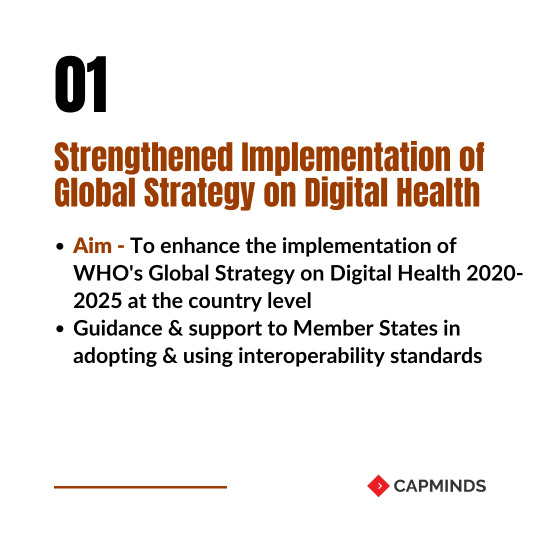
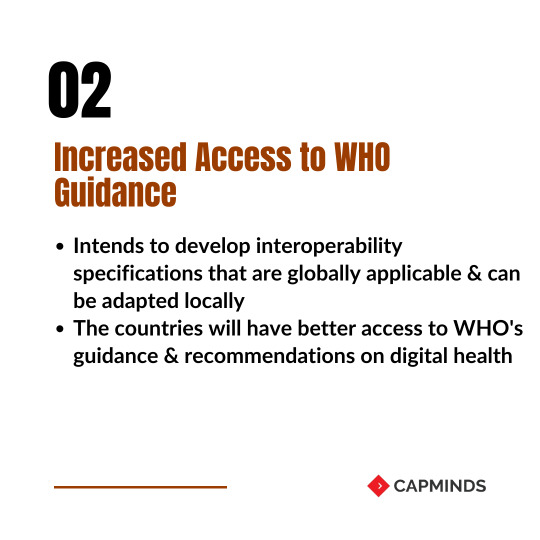
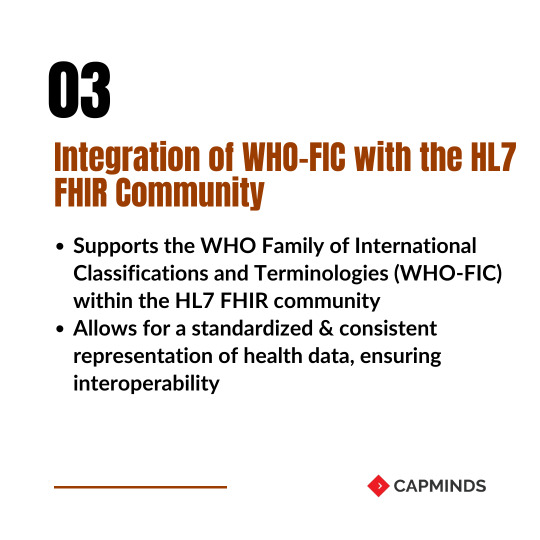
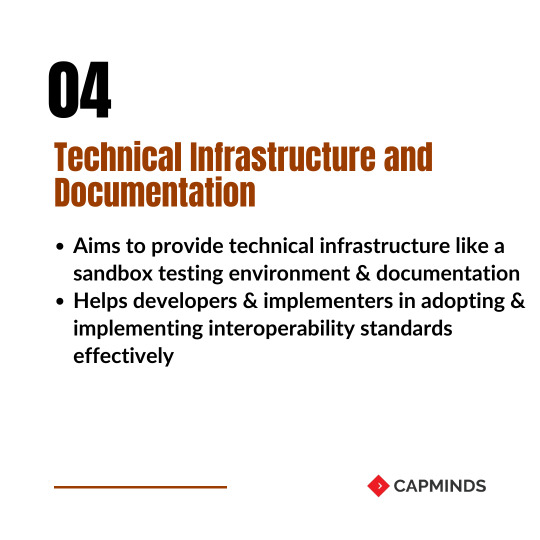


The collaboration between WHO and HL7 International brings together their respective expertise and resources to drive the adoption and appropriate use of interoperability standards globally.
This collaboration has the potential to harmonize digital health systems, improve data exchange and continuity of care, and contribute to the overall goal of achieving universal health coverage.
2 notes
·
View notes